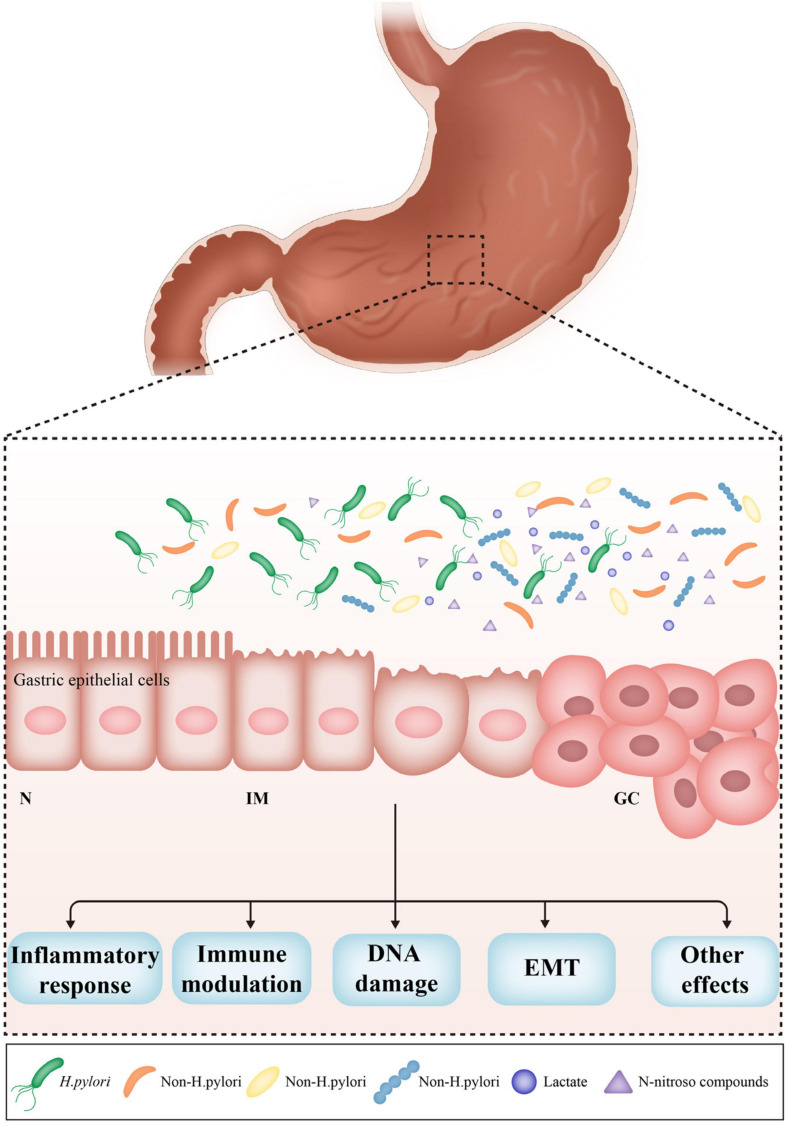FIGURE 1.
The effects of non-Helicobacter pylori bacteria on gastric carcinogenesis. H. pylori infection triggers the inflammatory response, which causes the loss of acid-secreting parietal cells, leading to the increased pH in the stomach. The alteration of acidic environment of the stomach allows colonization of other bacteria, subsequently results in dysbiosis of gastric microbiome. Non-H. pylori bacteria promote gastric carcinogenesis through their own characteristics and microbial metabolites, such as N-nitroso compounds and lactate. The main possible mechanisms include induction of inflammatory response, modulation of immune response, induction of DNA damage, and promotion of EMT. N, normal; IM, intestinal metaplasia; GC, gastric cancer; EMT, epithelial–mesenchymal transition.

